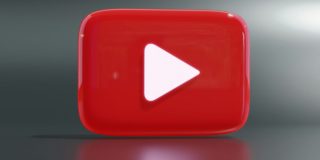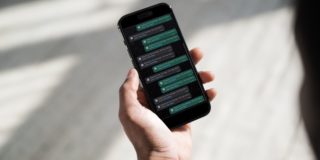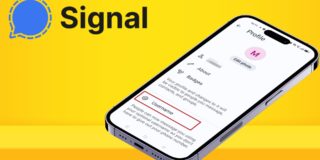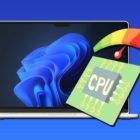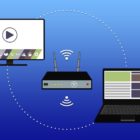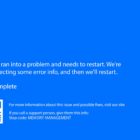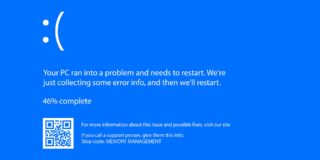What And Where Is Windows Clipboard On Surface Pro 4? 6 Must Know Tips For Clipboard
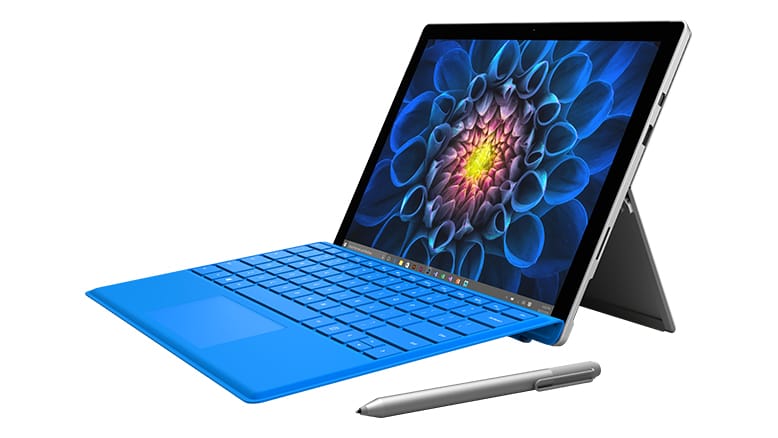
Never heard of Windows Clipboard or you want to know how to see what I copy in Clipboard on Microsoft Surface Pro 4? Sure you did, but you had no idea that you are actually calling it “Copy & Paste”. Or you’ve heard of it but you think it’s just a plain, boring tool for copying and pasting small blocks of text? In this article, you’re going to find a lot more about this incredibly useful tool like being able to clear Clipboard and the question where is my Clipboard on Surface Pro 4?
We’ve put together 6 of the most common and important questions that might occur to you when working with Windows Clipboard. From what is it and how you can access it to special tweaks relating to the format of what you’re copying, it’s all rounded up in this Windows Clipboard user guide, with the first thing is by answering what is Clipboard and where is the Clipboard on Surface Pro 4?
Remember this one: it’s not just for copying massive text chunks from Wikipedia for your homework.
There are actually so many uses of it, that you might be surprised. So let us look at these questions and give you the answers you’re eager for:
What is Windows Clipboard and where is my Clipboard on Surface Pro 4?
This is not an app, software or program. It is more like a function of your operating system. Even though, in this article, we are talking about this function integrated with Windows on Microsoft Surface Pro 4, many other operating systems have it as well.
The purpose of this function is to facilitate the copy and paste of almost unlimited amounts of data – be it text information or images. Despite this general availability, it still comes with a series of limitations:
- You can only copy one selection at a time;
- With every new copy command, the previous entry will be deleted;
- With every new computer restart or switch off, the last entry will be deleted;
- The larger the amount of information you are trying to copy, the higher the chances to slow down your computer (during the copying process).
As to where can you find it on your PC, it’s more of a “how do I access it” or “how to see what I copy in Clipboard” kind of question. Since it is a function, not a specific app or something similar, you just activate it with a keyboard command:
- Windows Clipboard does the copy & paste thing;
- To copy a piece of information you select it and simultaneously press the “CTRL” and “C” keys on your keyboard;
- To paste that piece of information you click on where you want to move it and simultaneously press the “CTRL” and “V” keys on your keyboard. This will allow you to see what you copy in Clipboard.
- Using Windows Clipboard = CTRL+ C followed by CTRL + V.
Is there any way I can see this Clipboard?
We already suggested the answer to this question, but let’s get a bit into details. The short answer would be that it depends on what Windows version you’re using.
With the previous versions, such as Windows XP or Windows Vista, users can access the clipboard and the contents saved on it. The things are becoming a bit more difficult once you switch to Windows 7. More difficult, but not impossible though to see what I copy in my Clipboard.
How can I clear the Windows Clipboard history on Surface Pro 4?
Again, we already made a quick reference on this chapter, but there’s a bit more to say about the Clipboard history on Microsoft Surface Pro 4. Shortly put, there’s no such thing… The Clipboard is like a temporary memory with a single storage space and you can clear Clipboard every time.
It basically has no history and it actually erases the last information that you copied much easier than you thought. In fact, many people often accidentally delete what they have previously selected, as there are several different and fast ways to empty Clipboard on Surface Pro 4:
- When you shut down your computer, you lose everything from your Clipboard;
- When you restart your computer, again, you clear Clipboard history;
- When you click on your keyboard “PrintScreen” key, the one labeled as “prt sc”, you overwrite whatever was saved on your Clipboard;
- If you want to use this fast method when you’re trying to leave the PC in a hurry, just access any harmless website and press this key. The Clipboard will automatically save the image of your screen, with that website on it, so no one else will be able to see what you used your Clipboard for;
- On the same premises as using the “PrintScreen” key, you can simply select a short piece of harmless text and use the copy command: “CTRL+C”;
- This command will automatically save the newly selected text in your Clipboard.
To sum up, if you want to hide whatever you’ve previously copied to your Windows Clipboard, suffices to either turn off/restart the PC or to save an innocent image or text in the Clipboard.
Now, if you’re the type of person who prefers to complicate things, there are two other strategies, more technical, that you can implement:
Create a desktop shortcut for this particular purpose
This shortcut, the moment you click on it, will erase your Clipboard.
- Go to your desktop
- Right-click on it
- Click on New
- Click on Shortcut
- Type in the popup box cmd /c “echo off | clip”
- Click on Next
- Type a name for your newly created shortcut (for instance, Clear Clipboard)
- Click on Finish
- Right-click on the newly created shortcut
- Go to Properties
- Personalize it by adjusting the Logo and the Keyboard Shortcut options
NOTE: Once you have implemented the entire above, you might have to restart your computer before the icon becomes active.
Create a right-click option on your desktop for this particular purpose
How would you like to right-click on your desktop and just select an Erase Clipboard option? In order to benefit from this feature, you will have to make some tweaks in your Registry:
- Access the Registry
- Go to HKEY_CLASSES_ROOT\Directory\Background\
- Look for the Shell option in the left-hand panel
- Right-click on this option
- Click on New
- Click on Key
- Type a name for the right-click option you are about to create (for instance, Clear Clipboard)
- On the newly created option, right-click and look for the New option
- Click on New
- Click on Key
- Type in the name “Command” (without quotation marks)
- Look in the right-hand panel and identify the Default option
- Double-click on Default
- Click on Modify
- Look for the Value Data box
- Type in the Value Data field this exact data: exe /c echo off | clip
- Click on OK
- Press on your keyboard’s F5 key, in order to refresh the changes in the Registry and to shut it down
- Restart the computer, just to be sure that the newly created option will be active right away
From now on, when you right-click on your desktop, in the Context menu that will drop down, you should be able to see the Clear Clipboard option as well.
NOTE: Accessing and editing the Registry is a very serious maneuver that could potentially damage your entire system. Proceed with caution or do not proceed at all, if you are not feeling comfortable doing so!
What if I want to keep a history of my Clipboard?
We’ve spent most of this article explaining how the Windows Clipboard works on Microsoft Surface Pro 4. By now, it should be pretty obvious that there is actually no option for having a history of this function. At least not when using Window’s function.
If you want to have access to this particular feature, you will have to switch to a third-party. Luckily, there are all kinds of third-party clipboard managers available online. Since this is a Windows Clipboard guide, we’re not going to get into such details, for now. Suffices to remember that you have an option, but it is not provided by Microsoft.
Can I copy-paste from two different computers with Windows Clipboard?
You want to take one piece of information from a computer and paste it on another computer? Whether you’re having two computers in the same room / house or we’re talking about your personal and your office computer, it is doable.
Though, there are a few conditions you need to check in order to make it possible:
- Both computers must be turned on
- Both computers have to run a Windows operating system
- If you want to copy something from a remote computer, the Clipboard will absolutely have to be active
When all these conditions are fulfilled, you can proceed to the following steps:
- Access the Start Menu (alternatively, you can click on your keyboard’s Windows key);
- Type in “Remote Desktop Connection” (without quotation marks);
- In the newly opened list, on top of it, you should be able to see this option already selected;
- Click on the Remote Desktop Connection option;
- If you’re getting the small window, where you can only type in the computer name and click on Connect, look for the Options menu and click on it;
- Identify the Local Resources tab and click on it;
- Look for the checkbox that refers to the Clipboard and make sure it’s checked;
- Activate the remote connection with the other computer.
The clipboard should work as usually, allowing you to transfer information from there to your Surface Pro 4.
It was working just fine, until it didn’t
This is a common problem when sharing clipboard content remotely. Most of the time, it’s the so-called rdpclip to blame.
Rdpclip is the program behind the scenes, responsible for managing the sharing of your Clipboard with the remote computer. Since it’s working on the remote computer, and not on the computer where you are currently working, you will need to fix it from that remote computer:
- Access the Task Manager
- Click on the Processes tab
- Identify the rdpclip.exe process from the list
- Click on End Process
- Click on the Application Tab
- Click on New Process
- Type “rdpclip” (without quotation marks)
- Click on OK
Now you have restarted the process and you should be able to access the Clipboard on that remote computer once again.
Can I skip the text format when copying with Windows Clipboard?
You’re working in your own document, with your own formatting, when you need to bring a piece of content from another source, using the Windows Clipboard. But when you’ve come to the “CTRL+V” part, you notice the copied text comes with its own format.
This one doesn’t just mess with your initial format, but also forces you to work extra to make everything match together. You could do the trick of initially copying the data into a Notepad file, where all format is erased. But you’d have to do a double Copy & Paste – from the original source to the Notepad and from the Notepad to your document.
Luckily, there is a better way for doing so. It’s called PureText and it does a great work when it comes to striping rich text formatting. Sure, it could leave some word wrapping or HTML tags in place, but the most annoying formats – such as underlining, italics or bold, font colors, tables, embedded objects and so on – will go away on Microsoft Surface Pro 4.






